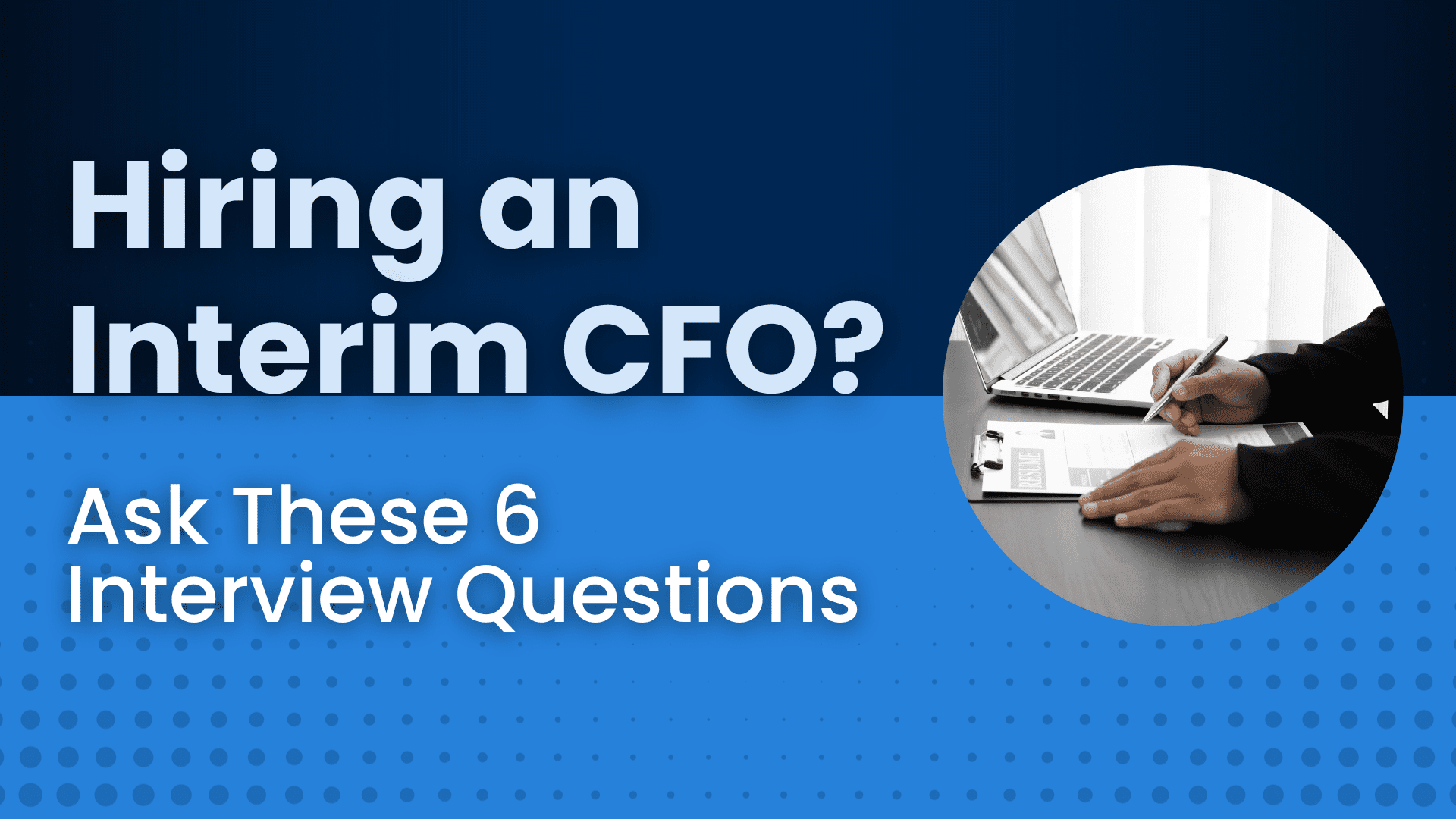This isn’t your parents’ CFO: the job and responsibilities of the top finance executive has undergone a significant evolution in the past few years. Here are some of the ways in which the CFO’s role is changing.
It used to be that the chief financial officer of a company could be expected to know the numbers — full-stop. In the past, the CFO, as the company’s top accountant, was tasked with preparing financial statements, developing budgets and forecasts, dealing with banks and investors, and the like. Above all, they were responsible for monitoring the financial health and corporate governance of their organization, and ensuring that its accounting and other internal controls complied with increasingly stringent regulatory standards. To be sure, reporting their company’s financials wasn’t the only thing a CFO was responsible for — but it was certainly the most important part of their job.
Alas, those halcyon days, when a CFO could only concern themselves with processing transactions and balancing the books and little else besides, are long since behind us. Not that their previous duties in regards to financial reporting and regulatory compliance have diminished in significance. On the contrary: in a business and political environment in which financial transparency and accountability are the watchwords of the day, the CFO’s accounting expertise has become even more valuable to their organization and its various stakeholders.
But while many companies still prefer that their financial executives have an accountancy qualification, the job description of a modern-day CFO goes well beyond pure accounting or number-crunching. In the same way that finance teams in general have had to leave the back office to work with other divisions at building value for the company as a whole, CFOs, as the faces of finance in their organizations, are today expected to occupy several different roles.
In particular, they are being asked to don an increasingly strategic and operational cap, in order to better support boardroom and executive decision-making, and help drive their company’s overall business strategy and execution. CFOs today are expected to be strategic thinkers and leaders who can deliver — not just report — performance results.
If you’re an accounting and finance candidate or executive who’s gunning for a CFO position in the future, it’s important that you understand the nature of the role today. Here are some of the ways in which the position is being reinvented.
From beancounter to business partner?
Today’s CFO needs to be more of a “strategic business partner.” It’s a slogan repeated in management circles, embraced by keynote speakers at trade and industry conferences, and echoed in the pages of the business press (and quite possibly included on the resumes of most CFOs or would-be CFOs). It’s become a part of the jargon tossed about by finance and accounting professionals. But what does it mean?
Today’s CFOs have a lot more on their plates than ever before. More and more companies want CFOs who aren’t limited to financial reporting, budgeting, or forecasting. In a recent McKinsey survey of 164 CFOs, 88 percent of respondents said their CEOs have encouraged them to actively contribute to determining the strategic business agenda and outlook of their organizations.
CFOs today are expected to be strategic thinkers and leaders who can deliver — not just report — performance results.
The upshot? Upper management want a versatile, multifaceted, responsive and value-oriented finance department that doesn’t report numbers for their own sake or just any numbers, but provides, rather, the kind of information and support that decision-makers can actually use to help them compete in the marketplace.
In practical terms, this means not only gathering, summarizing, and validating historical financial data, as the finance function has traditionally done. Finance teams are now being called upon to produce forward-thinking, predictive analysis, based on real-time metrics, that can both measure current performance and anticipate future trends. Boards and executives, in short, want to know not only how the business did last year, but how it’s going to do this year — and how it might do better.
A pretty tall order, by any measure. The shift it involves, from finance as scorekeeper to finance as value-builder — from reporting that profits were down last quarter, to determining that breaking into Chinese or Middle Eastern markets should be a priority — has to begin at the top. It starts with a CFO who is curious about the business from end to end, and who is willing to broaden their horizons accordingly. Indeed, in these lean times, many CFOs have had to assume corporate functions that might once have belonged to the portfolio of a COO or president. As Greg Twinney, CFO of Kobo Inc., explains, “taking care of the finance function require dealing with operational issues as well, because the two are so closely linked.”
As much as anything, the modern CFO has to be a people person as much as a numbers person; they have to be as adept at building relationships as at crunching figures. The best CFOs are liasing not only with fellow executives and leaders of other business units, but also with the folks working on the frontlines (non-executive directors and staff in sales, operations, marketing, IT, and other divisions) as well as key external stakeholders (boards of directors, investors, vendors, partners, and clients, auditors and regulators). After all, as one participant in a 2011 study by the Canadian Financial Executives Research Foundation (CFERF) put it: “By the time you look at the numbers, they are old. Better to talk to a sales guy and see what’s coming down the pipe so you can prepare.” Only by talking to people can the CFO take an accurate measure of the company and ensure that its business and operational objectives are in lockstep with its financial resources (or if new infrastructure needs to be developed to support those objectives).
In principle, CFOs are well-positioned to identify the essential drivers of a business — and therewith, future areas of growth and investment…
“A unique perspective”
There’s a reason why many CEOs and boards today are keen to involve their CFOs in shaping their overall business strategies. Because finance intersects with every other function in a company, the CFO’s vantage-point is a privileged one. “As the CFO, you have a unique perspective,” notes Jim Mitrakos, President and COO of Paramount Pallet. Few others in the organization, after all, will have as broad or extensive an understanding of its business model (e.g., the labour, resources, costs, and assets it has at its disposal) or its other fundamentals (capital structure, liquidity, etc.).
It’s understandable, then, that firms would want to leverage their CFOs’ expertise on this score and have them at the table when executive decisions are taken, to ensure that company-wide strategies (regarding pricing, product development, production schedules, etc.) are based on sound financial analysis. In fact, CFOs may enjoy an advantage over other senior executives due to their particular insight into the economics of the business. “Because you work closer with the hard financial data than anyone else,” Mitrakos says, “you should be able to see opportunity where others cannot.” In principle, CFOs are well-positioned to identify the essential drivers of a business — and therewith, future areas of growth and investment, where increasingly scarce cash and resources can be allocated to generate value.
At the same time, the CFO “needs to be the voice of reason,” says Mitrakos. As the fiscal conscience of their organization, the CFO should be the first one on the management team to point out potential financial risks, advise against dangerous or unprofitable ventures, and call for the elimination or reduction of non-value-adding projects and processes — and they need to do this before the damage is done, as opposed to simply reporting it after the fact. In the same aforementioned McKinsey study, more than half of the CFOs surveyed said they were counted on to question and challenge company strategies on precisely this basis.
A different kind of CFO, a different set of skills
Continued professional development is a must for all accounting and finance professionals, but it’s been particularly important for CFOs, whose skillsets need to keep pace with their rapidly changing roles. For those of you out there with aspirations of becoming CFOs, it’s vital that you update your qualifications to match the ever-expanding breadth of the position.
That doesn’t mean, of course, that a CFO can get away with not knowing the numbers. As the top accounting minds in their organizations, CFOs have always had to have a handle on balancing the books, recording transactions, analyzing financial data, and so on. But an in-depth knowledge of the numbers is no longer enough. As business partners and strategic leaders, CFOs are now being asked to provide input into decisions about what projects should be funded, what mergers or acquisitions made, what services or product lines eliminated or expanded, and so on.
Mild-mannered reporter of the numbers by day, strategic, value-building hero by night — today’s CFO seemingly is expected to perform superhuman feats.
While most accountants are trained to think analytically and spot key trends and developments, not every CA/CGA/CMA will have the commercial background or experience base to deal with these kinds of strategic performance challenges. Similarly, some finance managers and executives may not had the time or need to develop their “softer” skills in leadership, facilitation, negotiation, relationship-building, and communication with clients, customers, and partners. These are the kinds of skills that a CFO would require, for instance, to help them translate dense, complex financial data into simple, easy-to-grasp information or insights that other non-finance executives could apprehend and act upon.
As such, many CFOs have found it advantageous to have supplemented their professional repertoire with more general business and corporate development training. A Robert Half International survey of CFOs found that 40% of those surveyed spent one day or more a month training. Similarly, a Russell Reynolds Associates study of CFOs in the Fortune 100 companies found that 62% of them held advanced degrees, while 54% were MBA graduates. While MBA’s can often prove a mixed blessing for accountants, those with CFO aspirations may want to consider the benefits of an MBA for their promotional opportunities.
From a focus on reporting financials to a wider commitment to building value and contributing to strategy, the role of the CFO is ever-evolving; the only constant is change. Mild-mannered reporter of the numbers by day, strategic, value-building hero by night — today’s CFO seemingly is expected to perform superhuman feats. While financial analysis and compliance will always remain the most important and routine parts of the CFO’s job, CFOs must be able to contribute to raising their companies’ bottom line — not just reporting it. If you have your eye on the top finance job at your or another organization, make sure you’re alert to both of these aspects of being a CFO today.
Let us know what you think! At Clarity Recruitment, we’re always interested in hearing from accounting and finance professionals like yourselves, who are ready for new, exciting opportunities that can take their careers to the next level. And be sure to follow us on Twitter (@clarityrecruits) and connect with us on Facebook for more great tips and advice!



